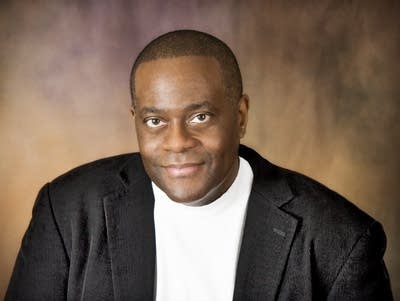
I was the teacher's pet in first grade. Well, in truth, I was the teacher's pet in quite a few grades, but that first experience had the deepest and most lasting effect on me. My first-grade teacher was a pianist, and listening to her play every day was one of the most exciting experiences of my childhood. I have no idea if she was any good, but I loved the way she swayed back and forth on the piano bench in time to the music. And I remember being thrilled by the way her heavy-handed playing echoed throughout our small room.
My most vivid recollection of my first-grade teacher is a memory from Christmastime. In honor of the holiday season, she taught the class to sing several glacially paced, bleak Christmas songs, and on gray days — there are lots of those in a typical Indiana winter — she would turn off all of the lights in the room and go to her piano. Then she'd have us sing. Her favorite tune, and the one we sang most often, was an especially gloomy little round. If the song had any specifically holiday-related lyrics, I don't recall them. All I remember are the words "the cold wind is singing a solitary, mourn-filled song," followed by a falling and rising chromatic scale on the syllable "oo."
Picture it. Twenty, or so, six-year-olds sitting in a darkened classroom making ghostly wailing sounds to an accompaniment that — in my memory, at least — was comprised solely of two heavily pounded-out minor chords. Snow is falling outside and, all the while, their teacher is swaying at the piano and calling out, "Sing, children, sing!"
I loved it.
Because this happened over 40 years ago, in less enlightened times, the upshot of my teacher's behavior was not an investigation that resulted in her receiving the counseling and anti-depressant medications that she probably needed. Instead, the result was a teacher's pet who was so profoundly impressed by the drama, power and outright weirdness of the musical scenarios his beloved teacher created, that he became a cellist and novelist.
Another consequence of those wonderful days spent shrieking out "oo" in the shadows was that I continue to love sad Christmas songs. Glum Christmas music doesn't depress me in the least. In fact, it was only after giving a holiday mix tape to a few friends many years ago that it even occurred to me that not everyone liked their Christmas carols loaded with dark images and pathos. I was shocked that year to learn that many people interpret a Christmas music collection that begins with Nat King Cole's "The Little Boy that Santa Claus Forgot" as a cry for help. Funny, I've always felt the same way about people who actually enjoy hearing "It's the Most Wonderful Time of the Year." I'm astounded that anyone can derive pleasure from a song that contains the term "hap-happiest" or, even worse, uses "mistletoe" as a verb. That's just wrong. Hearing one manically cheery verse of "It's the Most Wonderful Time of the Year" sends me running straight for Tom Waits's "Christmas Card from a Hooker in Minneapolis."
I don't hate "Deck the Halls," but it does make me long for Dan Fogelberg's classic bummer "Same Old Lang Syne." And, for me, the only appropriate response to a chorus barking out "Jingle Bells" is Judy Garland crooning "Have Yourself a Merry Little Christmas."
So this Christmas, when I return to Indiana to see my family and friends, I'll merrily listen to the Vince Guaraldi Trio's melancholy "Christmastime is Here," Oleta Adams's gut-wrenchingly beseeching "Breath of Heaven," and a host of other heartwarming Christmas dirges while others enjoy more up-tempo fare. And whenever the opportunity arises, I'll raise a toast to the eccentric, piano-playing schoolteacher who taught me to delight in the gifts that come in dreary packages.
Edward Kelsey Moore lives and writes in Chicago, where he also enjoys a career as a professional cellist. Edward's short fiction has appeared in numerous literary magazines and has been performed on National Public Radio. A New York Times bestseller, The Supremes at Earl's All-You-Can-Eat, is Edward Kelsey Moore's first novel.
Love the music?
Show your support by making a gift to YourClassical.
Each day, we’re here for you with thoughtful streams that set the tone for your day – not to mention the stories and programs that inspire you to new discovery and help you explore the music you love.
YourClassical is available for free, because we are listener-supported public media. Take a moment to make your gift today.

